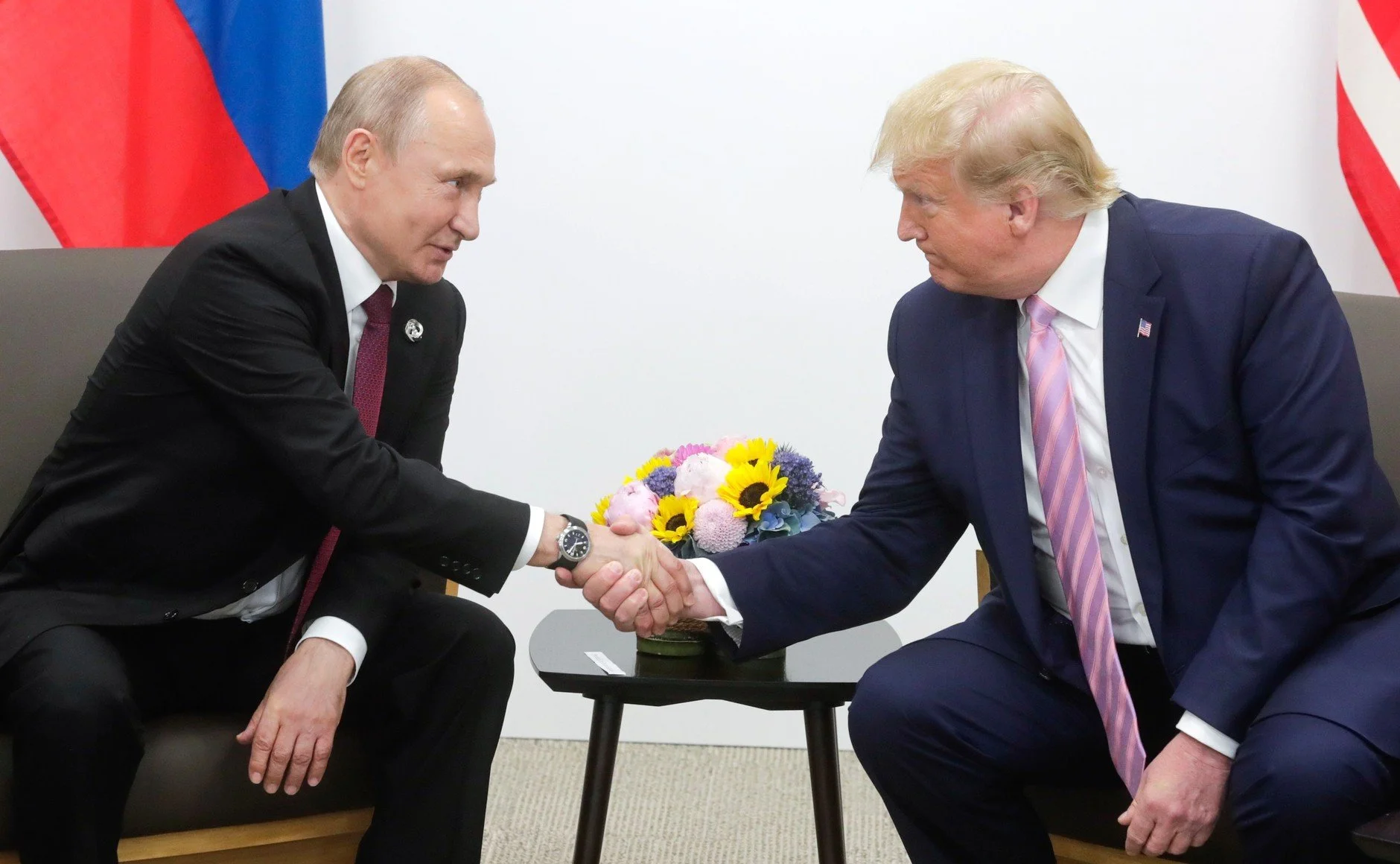OPINION: How a Trump administration will affect overseas conflicts
Photo via Presidential Press and Information Office/Public domain/Wikimedia Commons
Alaina Sayre, a Freshman studying Journalism, argues that the upcoming Trump presidency could spell disaster for overseas conflicts.
Conflict overseas has been a controversial issue for decades. Whether or not the U.S. sends troops or aid is entirely up to the people we vote into power, especially the president. Giving someone the power to decide the future of a different country’s liberty is a massive decision, but unfortunately is not one that the average American citizen prioritizes when filling out their ballot. There are a few different conflicts overseas that are in real jeopardy now that President-elect Donald Trump is set to enter the White House in January.
RUSSO-UKRAINE WAR
Historically, the relationship between U.S. presidents and Russian President Putin has not been pleasant, but, in 2016, Trump changed that narrative. Trump commonly used amiable language to describe Putin, saying that Putin was a “highly respected” man during his campaign for the 2016 Election. Trump has consistently and unusually defended Putin throughout the years. When responding to the allegations that Putin was ordering the killings of journalists in a 2015 MSNBC interview, Trump responded, “He’s running his country and at least he’s a leader, unlike what we have in this country,” and “I think our country does plenty of killing also.”
That is not the only time Trump placed Putin and Russia on the same moral ground as the U.S. In a 2017 interview with Bill O’Reilly on Fox News, O’Reilly referred to Putin as a “killer” and pushed Trump to respond. Trump’s only response was, “there are a lot of killers. We’ve got a lot of killers. … You think our country’s so innocent?” Additionally, he once referred to Putin’s invasion of Ukraine as “genius” and “savvy.” He later stated he believed Putin was a “smart guy” who made a “terrible mistake” by invading Ukraine.
Trump has stated that he would swiftly end the conflict in Ukraine once he reentered office, but Vice President-elect JD Vance was the one to outline a plan to end the war. Even then, it seemed very similar to the demands made by Russia. In a Trump-Vance administration, Russia would retain the land they have taken from Ukraine and a demilitarized zone would be established along the current battle lines. The Ukrainian side of the border would be heavily fortified to prevent another Russian invasion. In addition to surrendering the land, Ukraine would be forced to remain a neutral state, meaning that they would not be allowed to join the North Atlantic Treaty Organization (NATO). By conceding to Russia’s demands, they will embolden the country and there is reason to believe this will not actually end the war in Ukraine permanently.
WAR IN ISRAEL
During Trump’s first presidency, he almost exclusively impacted the conflict in the Middle East negatively. Trump vocally praised the relationship the U.S. has with Israel by referring to them as a “cherished ally” and promised to “stand proudly” with Israel after war broke out in 2023. In 2017, Trump officially recognized Jerusalem—previously disputed land—as the capital of Israel and controversially made the decision to move the U.S. embassy from there to Tel Aviv. Although it is not out of the ordinary for U.S. politicians, Democrat or Republican, to advocate for Israel, Trump’s hostile actions toward others in the region have not helped tensions settle.
Since Trump won the election, Palestinians have started to fear that he will assist in making plans to expel them from the region. Their fears have been validated by Trump himself after he referred to President Joe Biden as a “bad Palestinian” because he did not promise to help Israel “finish the job” during the presidential debate in June. The only hopeful thing Trump has said about the conflict is, “get it over with and let’s get back to peace and stop killing people.”
However, how he plans to end the conflict is unknown. His public pro-Israel standpoint has given Israeli officials hope. Former Israeli ambassador to Washington, Michael Oren, commented on Trump’s previous term, “He has the most pro-Israel record of any president. The hope is here that there’ll be more of the same.”
Trump has been extremely unclear on his actual plans for the ongoing humanitarian crisis in Gaza, which has raised concerns. The relationship between Netanyahu and Trump has not exactly sparked hope in those advocating for peace. Their relationship has extended beyond professional diplomats, as Netanyahu visited Trump’s Mar-a-Lago home in July of this year.
Additionally, the Biden administration was recently able to broker a ceasefire between Israel and Hezbollah, but they did not have long to celebrate that win before Trump and his team took credit for it.
CONCLUSION
Concerns about Trump’s morals were raised before he started running in 2016 and they have not been put at ease due to his questionable actions towards international conflicts, among other things. Almost two-thirds of the country believes that a presidency should depend on what candidates are capable of accomplishing in office rather than their personality or morals. However, I believe that Trump’s actions disprove this belief almost every time. His questionable relationships with problematic people and his general lack of understanding of the needs of people in humanitarian crises is extremely telling of the type of president he wants to become.
Please note that these views and opinions do not reflect those of The New Political.

